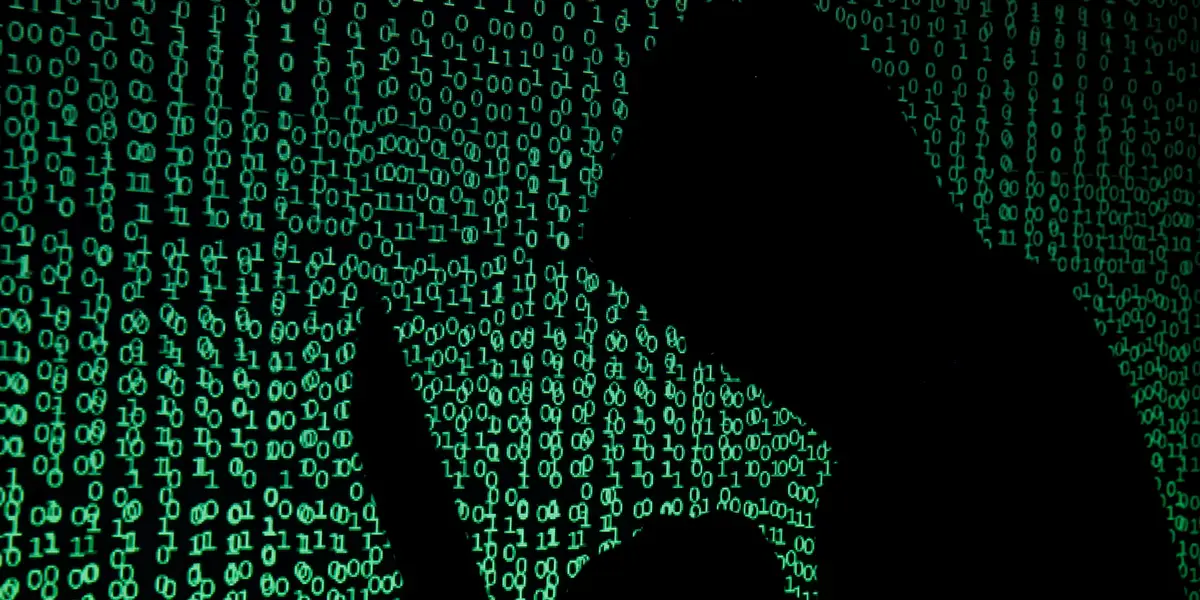What is ethical hacking? In the simplest terms, ethical hacking is the practice of testing and securing computer systems by using the same tools and techniques as malicious hackers, but with the permission and for the benefit of the organization. Ethical hackers, also known as “white hat” hackers, help organizations identify vulnerabilities in their systems before cybercriminals can exploit them. The primary purpose of ethical hacking is to prevent data breaches, system compromises, and other malicious activities by identifying and addressing weaknesses in an organization’s infrastructure. White-Hat Hacking serves as a proactive approach to cybersecurity, ensuring that companies can safeguard their sensitive data and assets.
The Importance of Ethical Hacking in Cybersecurity
As cyberattacks become more sophisticated and frequent, the need for ethical hacking has never been greater. What is ethical hacking? It is a crucial line of defense against a growing range of threats targeting businesses and individuals alike. With an increasing number of high-profile data breaches, hacking attempts, and system vulnerabilities, organizations are turning to ethical hackers to evaluate their security measures. By simulating the behavior of a hacker, ethical hackers help to uncover weak spots in the system before they are exploited maliciously. In this way, ethical hackers contribute to strengthening the security posture of businesses, preventing loss of data, financial damage, and reputational harm.
How Ethical Hacking Differs from Malicious Hacking
While the term “hacking” often carries a negative connotation, ethical hacking operates with the best interests of the organization in mind. What is ethical hacking in comparison to malicious hacking? The primary difference lies in the intent and authorization. Malicious hackers, or “black hat” hackers, breach systems with the intention of stealing, damaging, or compromising data for personal gain or to cause harm. Ethical hackers, on the other hand, perform their activities legally and with the permission of the organization. Their goal is to identify vulnerabilities and fix them, ensuring the security and integrity of the system. Ethical hackers may work independently or as part of a larger security team, and their work is guided by a code of ethics that prioritizes confidentiality and trust.
The Role of Ethical Hackers in a Security Team
Ethical hackers play a key role in any organization’s cybersecurity efforts. What is ethical hacking in the context of a security team? Ethical hackers are often integrated into security teams where their primary role is to test the effectiveness of security protocols, identify vulnerabilities, and recommend improvements. They may conduct penetration testing, vulnerability assessments, or other forms of security audits. Additionally, ethical hackers may collaborate with other security experts to implement security measures and best practices. They may also assist in developing security policies and training employees on how to recognize and respond to cybersecurity threats. By staying ahead of emerging threats and testing systems, ethical hackers help organizations mitigate risks and enhance their overall security posture.
Common Techniques Used in Ethical Hacking
Ethical hacking involves a variety of techniques that simulate cyberattacks to uncover vulnerabilities. What is ethical hacking in terms of its methods? Ethical hackers employ various strategies such as penetration testing, social engineering, vulnerability scanning, and network sniffing. Penetration testing involves attempting to exploit known vulnerabilities in a system, while vulnerability scanning identifies potential weaknesses without exploiting them. Social engineering techniques, such as phishing or pretexting, test the awareness and response of employees to various types of cyberattacks. Network sniffing is used to monitor network traffic and identify any potential security gaps. These techniques, among others, help ethical hackers pinpoint security flaws and suggest improvements.
Penetration Testing: A Core Element of Ethical Hacking

Penetration testing is one of the most common and well-known practices in ethical hacking. What is ethical hacking in terms of penetration testing? Penetration testing involves simulating an actual cyberattack on a network, application, or system to test its defenses. This process allows ethical hackers to identify vulnerabilities that may not be detected through traditional security measures. By mimicking the tactics, techniques, and procedures of cybercriminals, ethical hackers assess the organization’s security readiness. If vulnerabilities are found, they are reported to the organization with detailed recommendations for remediation. Penetration testing is essential for ensuring that an organization’s defenses are robust enough to withstand a real attack.
Ethical Hacking Certifications and Qualifications
Becoming an ethical hacker requires a solid foundation in cybersecurity and a set of specific technical skills. What is ethical hacking in terms of qualifications? To pursue a career as an ethical hacker, individuals often need to acquire relevant certifications and qualifications. One of the most respected certifications is the Certified Ethical Hacker (CEH) credential, offered by the EC-Council. This certification demonstrates that an individual has the skills and knowledge necessary to conduct white-hat hacking activities in a professional and effective manner. Other certifications, such as Offensive Security Certified Professional (OSCP) and CompTIA Security+, also serve as valuable credentials for aspiring ethical hackers. These certifications ensure that ethical hackers are well-equipped to assess and protect complex systems and networks.
Legal and Ethical Considerations in Ethical Hacking
Ethical hacking is conducted with the permission of the organization, and ethical hackers must adhere to strict legal and ethical guidelines. What is white-hat hacking in terms of its legal implications? Before conducting any type of ethical hacking, professionals must obtain explicit written authorization from the organization they are testing. Without this authorization, even well-intentioned hacking can be considered illegal. Additionally, ethical hackers must ensure that the data and systems they access during testing are kept confidential and secure. Ethical hackers are also bound by a code of conduct that includes respecting the privacy of individuals, avoiding unnecessary disruption to services, and reporting vulnerabilities in a responsible manner. By adhering to these guidelines, ethical hackers maintain trust and integrity within the cybersecurity community.
The Growing Demand for Ethical Hackers
The demand for ethical hackers has grown significantly in recent years as the frequency and sophistication of cyberattacks increase. What is white-hat hacking in terms of market demand? With more businesses and organizations investing in cybersecurity, ethical hackers are in high demand. According to industry reports, the cybersecurity sector is expected to experience significant growth in the coming years, leading to an increased need for skilled professionals. Ethical hackers are sought after by organizations across various sectors, including finance, healthcare, government, and technology. As cyber threats continue to evolve, the need for ethical hackers will only increase, offering exciting opportunities for those interested in pursuing a career in cybersecurity.
Ethical Hacking Tools and Software
Ethical hackers use a wide array of tools and software to perform their work. What is ethical hacking in terms of the tools used? Some of the most common tools include Kali Linux, Metasploit, Wireshark, Nmap, and Burp Suite. Kali Linux is a specialized operating system that provides a suite of penetration testing tools, while Metasploit is a framework that helps ethical hackers exploit vulnerabilities. Wireshark is used for network traffic analysis, and Nmap helps with network mapping and discovery. Burp Suite is a web vulnerability scanner that assists in identifying weaknesses in web applications. These tools, along with others, enable ethical hackers to perform thorough security assessments and provide detailed reports on vulnerabilities.
Ethical Hacking and Its Role in Preventing Data Breaches
One of the most significant contributions of ethical hacking is its ability to prevent data breaches. What is ethical hacking in terms of data security? Data breaches have become a major concern for organizations, as they can result in significant financial losses and damage to reputation. Ethical hackers help to mitigate the risk of data breaches by identifying vulnerabilities before they are exploited by malicious actors. Through penetration testing and vulnerability scanning, ethical hackers can pinpoint weaknesses in systems, applications, and networks. By addressing these vulnerabilities, organizations can reduce their chances of falling victim to a data breach, ensuring the safety and confidentiality of sensitive information.
The Future of Ethical Hacking
As technology continues to evolve, so will the methods and tools used in ethical hacking. What is ethical hacking’s future in a rapidly changing digital landscape? The role of ethical hackers will become even more critical as cyber threats become more complex and pervasive. With the rise of artificial intelligence, machine learning, and the Internet of Things (IoT), new vulnerabilities will emerge, requiring innovative solutions from ethical hackers. Additionally, as organizations increasingly adopt cloud-based systems and services, ethical hackers will need to focus on securing cloud infrastructures and preventing cloud-related breaches. The future of white-hat hacking will be shaped by advancements in technology and the growing demand for digital security in an increasingly interconnected world.
Conclusion
In conclusion, ethical hacking plays a vital role in safeguarding the digital world. By identifying and addressing vulnerabilities before malicious hackers can exploit them, ethical hackers help protect organizations from data breaches, financial losses, and reputational damage. The growing demand for ethical hackers, combined with advancements in cybersecurity tools and techniques, ensures that this field will continue to evolve. As technology progresses, the role of ethical hackers will become more critical, helping to stay one step ahead of cybercriminals and secure the digital landscape for years to come.

